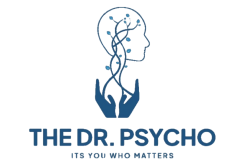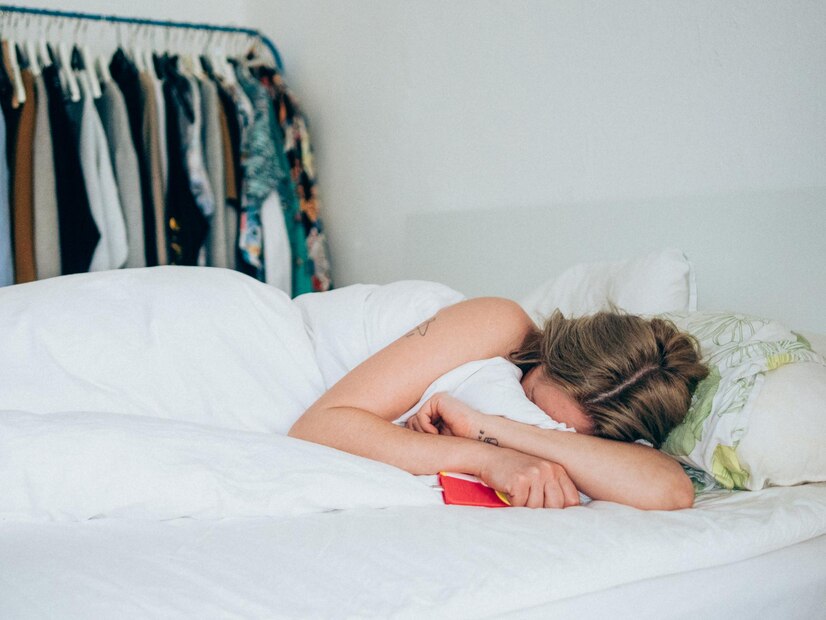Sleep is an essential part of our daily routine, crucial for our physical health, emotional wellbeing, and mental clarity. However, millions of people struggle with sleep-related issues,
The Dr. Psycho whether it’s trouble falling asleep, staying asleep, or waking up feeling unrefreshed. These challenges can negatively impact all areas of life — from work and relationships to physical health and overall happiness.
At The The Dr. Psycho, we understand the complex relationship between sleep and mental health. Our goal is to help you improve your sleep patterns, restore balance, and reclaim the restorative benefits that quality sleep brings.
What Are Sleep Issues?
Sleep issues encompass a variety of problems, including:
• Insomnia: The inability to fall asleep, stay asleep, or waking up too early and being unable to get back to sleep
• Sleep Apnea: A serious disorder where breathing repeatedly stops and starts during sleep
• Restless Leg Syndrome (RLS): A condition causing uncomfortable sensations in the legs, leading to an uncontrollable urge to move them, particularly at night
• Narcolepsy: A chronic condition that causes extreme drowsiness and sudden sleep attacks during the day
• Circadian Rhythm Disorders: Disruptions to your internal body clock that can cause irregular sleep patterns (e.g., shift work, jet lag, or delayed sleep phase disorder)
Even if you don’t have one of these specific disorders, common sleep problems like difficulty winding down, excessive wakefulness during the night, or feeling exhausted upon waking up can still significantly affect your life.
Signs Sleep Issues Are Affecting You
It’s easy to overlook the signs of sleep issues, but your body and mind often give clear signals that rest is lacking. Here are some key signs:
• Constant fatigue: Feeling exhausted during the day, even after a full night’s sleep
• Difficulty concentrating: Trouble focusing at work or during daily tasks due to lack of rest
• Mood changes: Irritability, increased stress, or anxiety often worsened by poor sleep
• Frequent awakenings: Waking up multiple times during the night and struggling to fall back asleep
• Dependence on stimulants: Relying on caffeine or other stimulants to stay awake or alert
• Decreased motivation: Finding it hard to get excited about your day or keep up with your responsibilities
Sleep issues can often be more than just an inconvenience. They can deeply affect your mood, productivity, and overall health. If these signs feel familiar, you’re not alone, and there are ways to address them.
How Therapy Helps with Sleep Issues
At The Dr. Psycho, we approach sleep issues holistically, understanding that it’s not just about “getting more sleep.” The quality and patterns of your sleep are just as important. Here’s how therapy can help you:
• Cognitive Behavioral Therapy for Insomnia (CBT-I) – a structured, evidencebased approach that addresses negative thoughts and behaviors that disrupt sleep
• Relaxation Techniques – helping you unwind and reduce stress through mindfulness, deep breathing, progressive muscle relaxation, and visualization
• Sleep Hygiene Coaching – teaching healthy sleep habits such as maintaining a regular sleep schedule, creating a calming bedtime routine, and optimizing your sleep environment
• Managing Underlying Mental Health Issues – addressing anxiety, depression, and stress, which are common contributors to sleep disturbances
• Behavioral Modifications – helping you break habits that may be disrupting your sleep, such as using electronics too late at night or drinking excessive caffeine
Healthy Sleep Habits: Tips for Better Sleep
Improving your sleep quality starts with small changes to your routine and environment. Here are some practical tips for healthier sleep:
• Create a Sleep Schedule: Go to bed and wake up at the same time every day, even on weekends. This helps regulate your body’s internal clock.
• Optimize Your Sleep Environment: Make sure your bedroom is dark, quiet, and cool. Invest in a comfortable mattress and pillows to support restful sleep.
• Limit Screen Time Before Bed: The blue light from phones, tablets, and computers can disrupt the production of melatonin, the hormone that regulates sleep. Try to avoid screens for at least 30 minutes before bedtime.
• Be Mindful of Food and Drink: Avoid heavy meals, caffeine, and alcohol too close to bedtime, as they can interfere with your sleep cycle.
• Engage in Relaxing Activities: Develop a calming bedtime routine, such as reading, taking a warm bath, or practicing gentle yoga.
• Exercise Regularly: Physical activity can promote better sleep, but try to finish any vigorous exercise a few hours before bedtime.
These simple changes can have a profound impact on the quality of your sleep, helping you feel more rested and energized each day.
When to Seek Help for Sleep Issues
If you’ve tried improving your sleep habits and still find yourself struggling with consistent sleep disturbances, it may be time to seek professional help. Persistent sleep issues can contribute to other health problems, including depression, anxiety, and chronic fatigue. Getting to the root of the problem — whether it’s a behavioral issue, a mental health concern, or a sleep disorder — can help restore your energy and balance.
At The Dr. Psycho, we’re here to help you address the psychological and behavioral factors that may be affecting your sleep. Together, we can explore tailored solutions that target your specific sleep needs, whether through individual therapy, group sessions, or specialized treatments like CBT-I.
Reclaiming Your Sleep, Reclaiming Your Life
Sleep isn’t just about resting your body; it’s about rejuvenating your mind and emotions. Good sleep is essential for optimal brain function, emotional resilience, and physical health. If you’re struggling with sleep issues, remember that it’s not something you have to face alone. With the right strategies, support, and guidance, you can overcome sleep difficulties and improve your quality of life.
Reach out to The Dr. Psycho for personalized sleep therapy and support. Let us help you get the rest you need to thrive.

